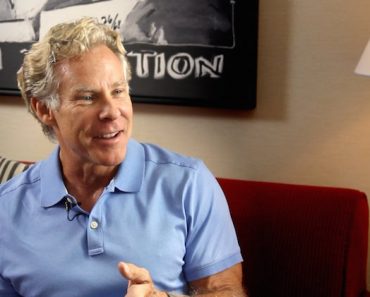Setting goals is essential to a successful self-improvement journey. But where do you start? Here are a few examples of personal development goals to get you moving toward the right track.
1. Organize your work space
Have you ever intended to spend less than 15 minutes on a small task, only to spend the first five looking for something in your office that you can’t complete the task without? Believe it or not, this common problem is completely fixable.
If you are easily distracted by the mess in your office, it might be time to reorganize. Rearrange your furniture so you don’t have to walk across your office to get to a particular shelf or cabinet. Keep your desk free of clutter and make sure you have adequate lighting, too, for better productivity.
2. Communicate more effectively with friends/colleagues/family members
This isn’t as silly of a goal as it might sound. Pay better attention to how you talk with and respond to others in your life. Do you interrupt and talk over people without meaning to? Are you not as great of a listener as you may have thought? This is something you might do unintentionally, but it’s something you can work on.
It is important to know the most effective ways to communicate with the people around you, and a great goal to work toward both in your personal and professional life. Good communication is the key to a successful work and home environment.
3. Learn how to manage your time better
Time management, or lack thereof, can mean the difference between a productive yet low-stress environment and a day so crammed with last-minute projects that you can’t even let yourself enjoy a single minute of it.
Practice better time management techniques by learning how to prioritize your to-do lists and make better use of calendar and scheduling apps. With better time management skills, you will be able to get a lot more done with much higher quality results.
4. Work on mono-tasking
We still here over and over again that multi-tasking is the best way to get things done, but anyone who claims that theory to be true just isn’t on the right track anymore. Mono-tasking is the new way to be productive, and the best time to start learning how is right now.
Choose one task at a time to work on. Only work on that one task for about an hour before taking a break. You can either go back to that task after your break or move on to a different one. The idea is not to jump between multiple smaller tasks at once, which is not good for our brains.
5. Create methods to stop procrastinating
If procrastination isn’t your worst enemy, you’re lucky. We all struggle with it to some degree in different areas of our lives. When it comes to personal development, learning to manage our procrastination habits should be one of the first things on your list.
You have to stop procrastinating, at least to the point where it’s negatively impacting you or other people. Take that task that you want to do the least and get it done first. Eliminate those pesky distractions and get to work, so you can be stress free sooner.
6. Practice techniques for better stress management
If you aren’t good at managing your own stress, there will never be a ‘good’ time to start learning how. It is one of those goals you simply have to decide to do, and start working on achieving right away.
Figure out which stress relief techniques work best for you. Ten short minutes of meditation? Yoga? Writing in a journal? The key is to find the best way to keep your stress levels under control and stick with it.
7. Start complimenting people more often
Think of how it feels whenever someone gives you a compliment. On the surface, it might feel a little embarrassing when someone calls attention to you. Deep down, though, compliments feel good. They reassure us that we’ve done something right today.
Though you might not like compliments all that much, internally, they can make a world of difference. You aren’t the only one who feels this way, either, which is why a good personal development goal is to try complimenting other people more often. Make someone else feel good: it will make you feel good, too.
8. Use the word “I” less in conversation
The world doesn’t revolve around you, and even without meaning to, you can give off the impression that you believe it does just by the way you phrase your sentences. It is tempting to use yourself as an example for every piece of commentary you offer up, but it isn’t necessary.
Try using the word “I” less often, especially when dealing with confrontation with other people. “It’s hard to get this done when we aren’t staying on task” sounds a lot less intimidating than, “I can’t get anything done when people aren’t paying attention.” Focus less on you and more on the entire equation you are a part of.
9. Complete a personal project from start to finish
As we dive further and further into the workforce, we tend to find there is a lot less time and energy left over from our jobs to put into personal projects we do on our own after work. Things like building our own bookshelves, putting together scrapbooks and other hobbies tend to fall between the cracks.
Make it a goal to focus on one personal project from start to finish. Dedicate a little bit of time each weekday or time over the weekends to work on that project until it’s done. We need these kinds of projects to keep us motivated and take our minds off of work.
No matter your goals, remember to make them specific. It’s okay if they seem a little self-centered: these are personal goals, after all; they’re supposed to focus on you. Living the kind of life you have always wished you could live isn’t as far off of a dream as you might have thought.







